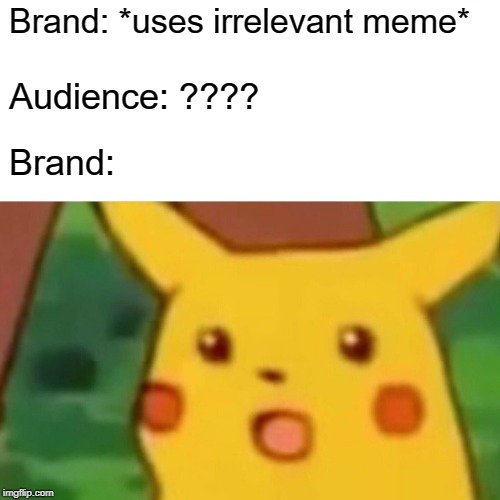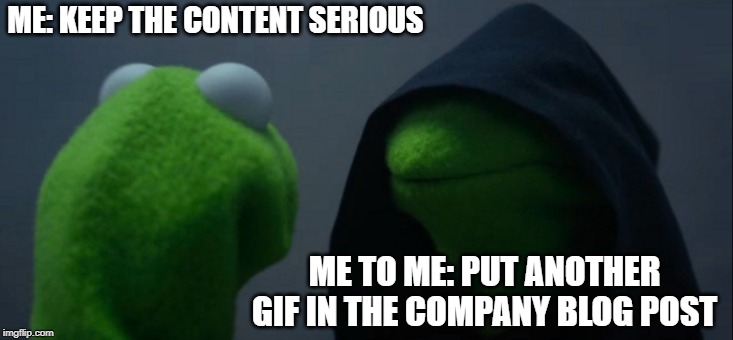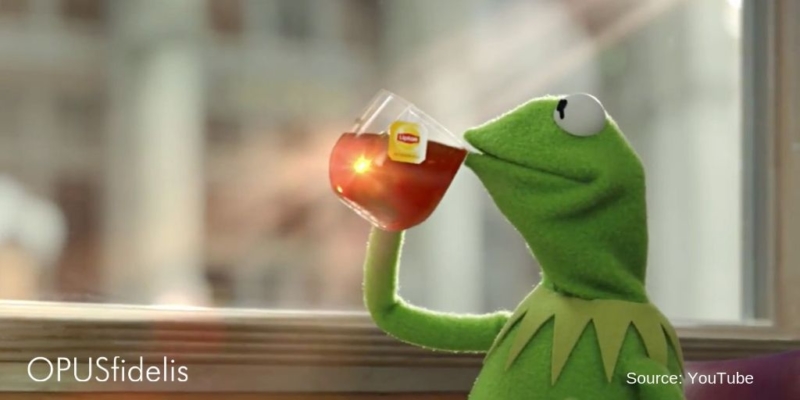In recent years, memes have become a staple of internet culture. It wasn’t always this way. In fact, the term “meme” wasn’t even invented until 1976, when scientist Richard Dawkins used it to describe a unit of the transmission of cultural information through imitation or replication. Now the term has a more colloquial significance as “images, video or text that referenc[e] popular culture and [are] designed to be repurposed.”
Creatives soon caught on and saw that memes were an invaluable tool to be utilized for marketing; but they didn’t realize that the power of memes can be a double-edged sword. Some of these well-meme-ing brands have had a hard time utilizing the medium. Consider this bizarre attempt to reach the youths by FritoLay’s “Funyuns,” featured below:

Source: Imgur
Speaking of cats, how about that time Wolfram Mathematica tried to be cool and ended up with whatever this is instead:

Source: Imgur
Using memes can be risky, but depending on your company, it may be useful to incorporate into your strategy. How can memes be helpful to your marketing strategy and how can you know if using memes would be a good fit for your brand?
Why use memes?
Memes can be used by creatives to create a connection with target audiences, show your brand’s relevance, and encourage content-shares at virtually no cost.
Juergen Dold, CEO of creative agency Optimist Inc., described the just how effective memes can be in a conversation with Marketing Dive:
“Within a three- to five-second timeframe, you can get across a really culturally loaded and expressive message. You can also now connect individuals or fans who might be part of a particular subculture into your campaign, which makes it personal, and that’s why it’s a really interesting tool.”
A word to the wise
Brands need to be careful that they are using memes in a way that is organic and true to their brand voice. Audiences can sense when things are “off” – don’t be the brand equivalent of that Facebook grandpa trying too hard to be cool when he’s just… not. Countless brands have attempted to incorporate memes into their marketing with disastrous results.

Is meme marketing right for you?
Meme usage requires close attention to trending topics and can often require jumping into social conversations that change in a matter of days or even hours. Meanwhile, it’s important to ensure that whatever you produce is consistent with your brand’s overall strategy and messaging. Using memes may not fit the character of your company, and depending on your demographic, may not be the optimal channel to reach your audience.

Casey Soulies, director of digital media at MeringCarson has remarked:
It can’t be selective or one-time only. You either are in it and it’s a part of who you are… or you’re not.. Right now, we would advise most of our clients not to participate.
Perhaps Marketing Dive puts it best:
Working with memes may be less of a marketing tactic and more of a skillset that involves observing what’s trending among key consumers and aligning those topics with a brand’s messaging.
If your company decides to take the plunge, keeping these characteristics in mind can help ensure your meme-usage “sparks joy,” amongst your audience.


